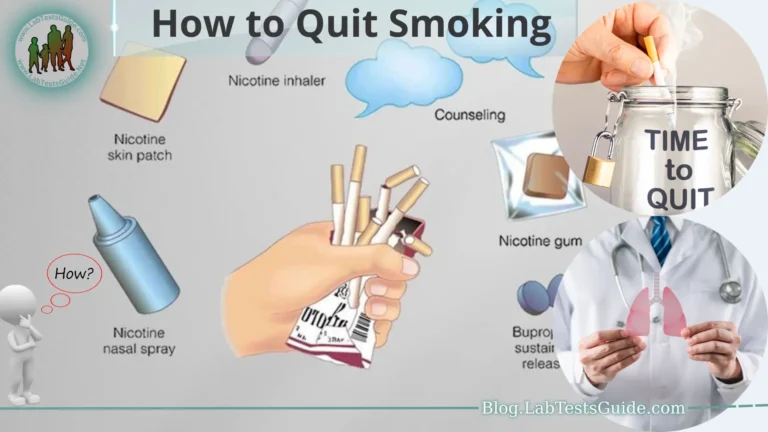Welcome to our guide on Dental Health and Oral Hygiene for Teens! As a teenager, you may be busy with school, sports, and other activities, but it’s important not to neglect your dental health. Good oral hygiene habits now can help you maintain healthy teeth and gums for the rest of your life.

In this guide, we’ll cover the basics of oral hygiene, including brushing and flossing techniques, as well as the importance of a healthy diet for your teeth. We’ll also discuss common dental problems faced by teens, such as cavities, gum disease, and bad breath, and how to prevent them.
For those with braces or other orthodontic appliances, we’ll provide tips on maintaining good oral hygiene and dealing with any discomfort or emergencies. We’ll also discuss when to see a dentist for regular check-ups, as well as signs that you may need to make an appointment.
By the end of this guide, you’ll have a better understanding of how to take care of your teeth and gums, and the importance of good oral hygiene habits for a lifetime of dental health. So let’s get started!
Common dental problems faced by teens:
Some of the most common dental problems faced by teens include.
- Here are some of the basics of oral hygiene that all teensThis is the most common dental problem faced by teens. It occurs when bacteria in the mouth produce acid that erodes the enamel of the teeth, leading to holes or cavities.
- Gum disease and gingivitis : Poor oral hygiene can lead to the buildup of plaque on the teeth, which can cause inflammation of the gums. This can lead to gum disease and gingivitis, which can cause bleeding, swelling, and even tooth loss.
- Bad breath : Poor oral hygiene, as well as certain foods and medications, can cause bad breath. It can also be a sign of an underlying dental problem.
- Teeth grinding and jaw clenching : Some teens may grind their teeth or clench their jaw, especially while sleeping. This can cause tooth damage and jaw pain.
- Wisdom teeth problems : Wisdom teeth are the last set of molars to grow in, usually in the late teenage years or early twenties. Some teens may experience pain or infection as their wisdom teeth come in.
It’s important to take these dental problems seriously and address them promptly with good oral hygiene habits and regular dental check-ups.
The Basics of Oral Hygiene:
Here are some of the basics of oral hygiene that all teens.
- Brushing: Brush your teeth at least twice a day, for two minutes each time. Use a soft-bristled toothbrush and fluoride toothpaste. Brush all surfaces of your teeth, including the fronts, backs, and chewing surfaces.
- Flossing: Floss at least once a day to remove food particles and plaque from between your teeth. Use about 18 inches of floss, and wind most of it around your middle fingers. Hold the floss tightly between your thumbs and forefingers and gently insert it between your teeth. Use a clean section of floss for each tooth.
- Mouthwash: Mouthwash can help kill bacteria and freshen breath. Use a mouthwash that contains fluoride and follow the directions on the label.
- Limit sugary and acidic foods and drinks : Sugary and acidic foods and drinks can contribute to tooth decay. Limit your consumption of these foods and drinks and brush your teeth afterwards if possible.
- Drink plenty of water: Drinking water can help rinse away food particles and bacteria, and keep your mouth hydrated.
- Replace your toothbrush regularly: Replace your toothbrush every three to four months, or sooner if the bristles are frayed or worn.
By following these basic oral hygiene habits, you can maintain healthy teeth and gums and prevent dental problems in the future.
Diet and Dental Health:
Here are some tips for a tooth-friendly diet.
- Limit sugary and acidic foods and drinks: Sugary and acidic foods and drinks can contribute to tooth decay. Limit your consumption of these foods and drinks, and brush your teeth afterwards if possible.
- Eat a variety of foods: A well-rounded diet that includes a variety of foods, such as fruits, vegetables, lean proteins, and whole grains, can provide the nutrients your body needs for healthy teeth and gums.
- Choose calcium-rich foods : Calcium is important for strong teeth and bones. Choose foods like dairy products, leafy green vegetables, and fortified cereals that are rich in calcium.
- Snack wisely: Snacking can increase the amount of time that bacteria in your mouth are exposed to sugar, which can increase your risk of tooth decay. If you need a snack, choose healthy options like fruits, vegetables, nuts, or cheese.
- Drink plenty of water: Drinking water can help rinse away food particles and bacteria, and keep your mouth hydrated.
Remember, good nutrition is important for your overall health as well as your dental health. By maintaining a healthy diet, you can help keep your teeth and gums healthy for years to come.
Orthodontic Treatment and Care:
Here are some things to know about orthodontic treatment and care.
- Types of orthodontic treatment: There are several types of orthodontic treatment, including traditional metal braces, clear braces, and clear aligners like Invisalign. Your orthodontist can help you determine which option is best for your needs.
- Length of treatment: The length of orthodontic treatment varies depending on the individual case. Most treatment lasts between one to three years.
- Proper care: Proper care is important during orthodontic treatment to ensure the best possible results. This includes following the orthodontist’s instructions, brushing and flossing regularly, and avoiding foods that can damage braces or aligners.
- Retainers : Once orthodontic treatment is complete, your orthodontist will likely recommend wearing a retainer to help maintain the new position of your teeth. It’s important to follow the orthodontist’s instructions for retainer wear and care to ensure the best possible results.
- Follow-up appointments : Regular follow-up appointments with your orthodontist are important during treatment to monitor progress and make any necessary adjustments. After treatment is complete, you may need periodic check-ups to ensure the results are maintained.
Orthodontic treatment can be a big commitment, but the benefits of a straighter, healthier smile can be worth it. By following proper care instructions and attending regular appointments, you can achieve the best possible results.
Dental Care for Specific Needs:
Here are some tips for dental care for specific needs.
- Braces: If you have braces, it’s important to brush and floss regularly to prevent food from getting trapped in the braces and causing tooth decay. You may need to avoid certain foods that can damage the braces, such as hard or sticky foods. Your orthodontist can provide specific instructions for care during your treatment.
- Dental anxiety : If you experience dental anxiety, it’s important to talk to your dentist about your concerns. They may be able to offer techniques to help you relax during appointments or recommend sedation options.
- Diabetes: Diabetes can increase the risk of gum disease and tooth decay. If you have diabetes, it’s important to maintain good blood sugar control and follow a healthy diet. Regular dental check-ups and cleanings are also important to monitor for any signs of gum disease.
- Orthodontic treatment : If you are undergoing orthodontic treatment, it’s important to follow the orthodontist’s instructions for care and attend regular appointments. It may also be necessary to modify your diet and avoid certain foods that can damage braces or aligners.
- Special needs: If you have special needs, such as physical or intellectual disabilities, your dentist can work with you and your caregivers to develop a dental care plan that meets your needs. This may include modifications to the dental environment, such as the use of sensory tools or communication aids.
Remember, it’s important to communicate any specific dental needs or concerns with your dentist or orthodontist. They can work with you to develop a personalized care plan that meets your needs and ensures optimal dental health.
When to See a Dentist:
Here are some signs that you may need to see a dentist.
- Tooth pain: If you experience tooth pain or sensitivity, it could be a sign of tooth decay or other dental problems.
- Bleeding or swollen gums: Bleeding or swollen gums can be a sign of gum disease, which can lead to tooth loss if left untreated.
- Bad breath: Persistent bad breath, also known as halitosis, can be a sign of gum disease, tooth decay, or other dental problems.
- Loose or broken teeth : If you have loose or broken teeth, it’s important to see a dentist right away to prevent further damage.
- Jaw pain or clicking : If you experience jaw pain or clicking, it could be a sign of a temporomandibular joint disorder (TMJ), which can be diagnosed and treated by a dentist.
- Changes in oral health: If you notice any changes in your oral health, such as new or changing spots on your tongue or inside your mouth, it’s important to see a dentist to rule out any potential issues.
In addition to these signs, it’s important to schedule regular dental check-ups every six months to maintain optimal dental health and catch any potential issues early. Your dentist can provide personalized recommendations for how often you should have check-ups based on your individual needs.
Conclusion.
Maintaining good dental health and oral hygiene is important for overall health and wellbeing. For teens, this means following basic oral hygiene practices like brushing and flossing regularly and avoiding sugary or acidic foods that can damage teeth. Additionally, orthodontic treatment may be necessary for some teens to achieve a straighter, healthier smile. It’s important to communicate any specific dental needs or concerns with your dentist to ensure optimal dental health. By following these practices and seeking regular dental check-ups, teens can maintain healthy teeth and gums for a lifetime.






